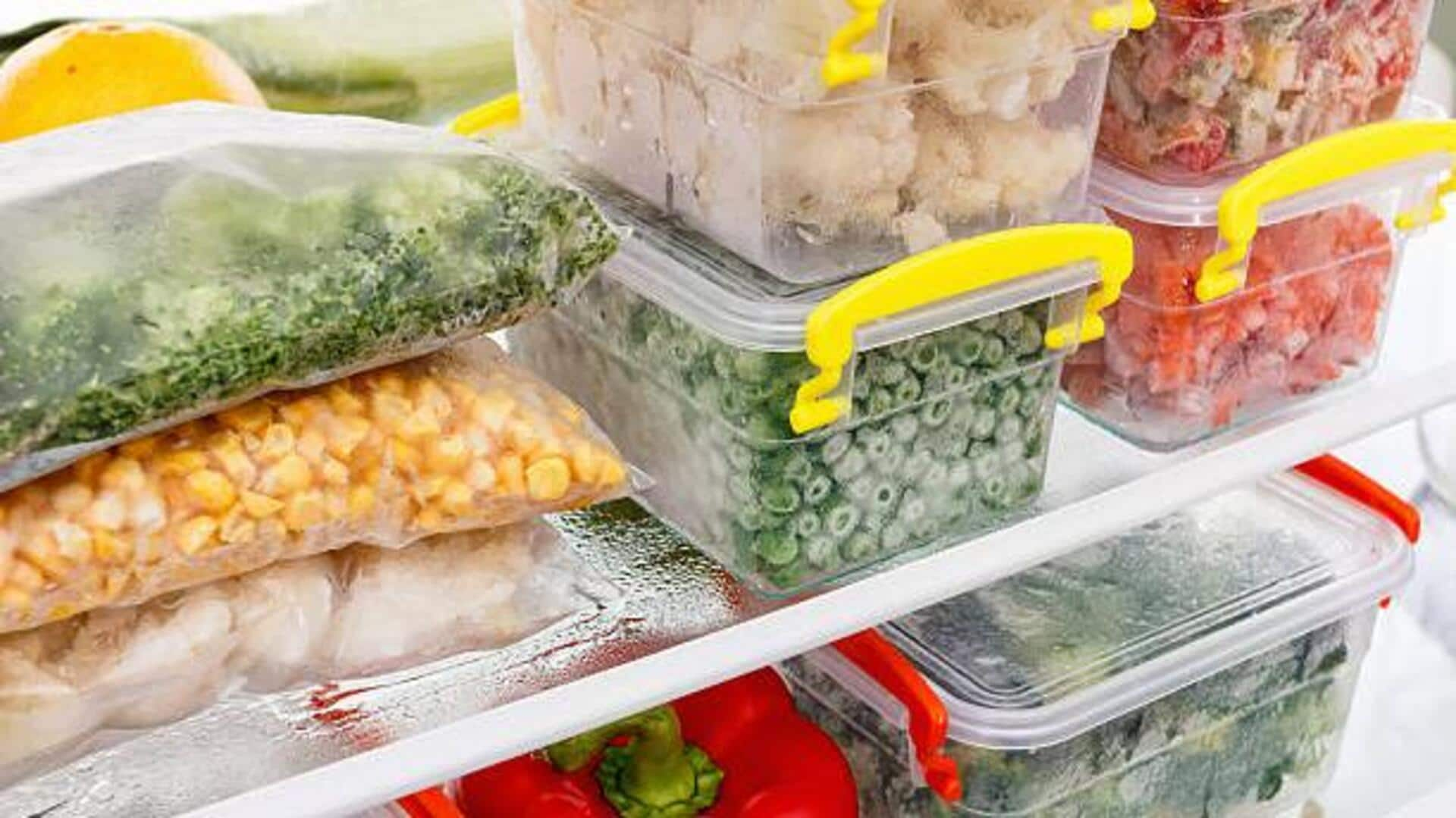
Frozen v/s fresh vegetables: Which is healthier?
What's the story
Frozen vegetables are a common staple in households, providing convenience and a long shelf life. But, is the debate of whether they are less healthy than their fresh counterparts? Here's a look at the nutritional differences between frozen and fresh vegetables, including the aspects of nutrient retention, processing methods, and storage conditions. Understanding these, you can decide whether to include frozen veggies in your diet.
Nutrients
Nutrient retention in frozen vegetables
Freezing is a preservation method that can help retain nutrients in vegetables. Studies suggest that freezing may preserve vitamins and minerals effectively because it halts the degradation process that occurs after harvesting. While some water-soluble vitamins like vitamin C may decrease slightly during blanching—a step before freezing—many nutrients remain intact. Therefore, frozen vegetables can be comparable to fresh ones in terms of nutrient content.
Processing
Processing methods impact
The processing methods of freezing vegetables are key to retaining their nutrition. Blanching is widely used to deactivate spoilage-causing enzymes but can result in slight nutrient loss. However, it also prevents the color and texture from changing during storage. The quick-freezing method seals in most nutrients the moment they are harvested, making frozen veggies a good alternative for dietary quality.
Storage
Storage conditions matter
Storage conditions heavily influence the nutritional value of fresh and frozen vegetables alike. Improperly stored fresh produce can degrade in nutrients quickly due to exposure to air, light over time. Properly stored frozen veggies, on the other hand, retain their nutritional value for longer when stored at consistent temperatures below zero degrees Celsius (32 degrees Fahrenheit). Proper storage means minimal nutrient loss.
Cost-effectiveness
Cost-effectiveness of frozen vegetables
Frozen vegetables also tend to be more cost-effective than fresh ones, as they last longer and are less likely to go to waste due to spoilage. Buying seasonal produce when it is plentiful and freezing it can be a frugal option that keeps its nutritional value intact. Moreover, pre-packaged frozen options could be more economical than out-of-season fresh produce available at higher prices.
Convenience
Convenience factor of frozen veggies
The biggest advantage of frozen veggies is convenience; they arrive pre-washed or chopped, saving you prep time. This makes them perfect for anyone looking for quick, nutritious meals, without the hours of prep that fresh options usually require. Their hassle-free usage aligns perfectly with the daily cooking habits of many, providing a practical solution without compromising on the nutrition front too much.